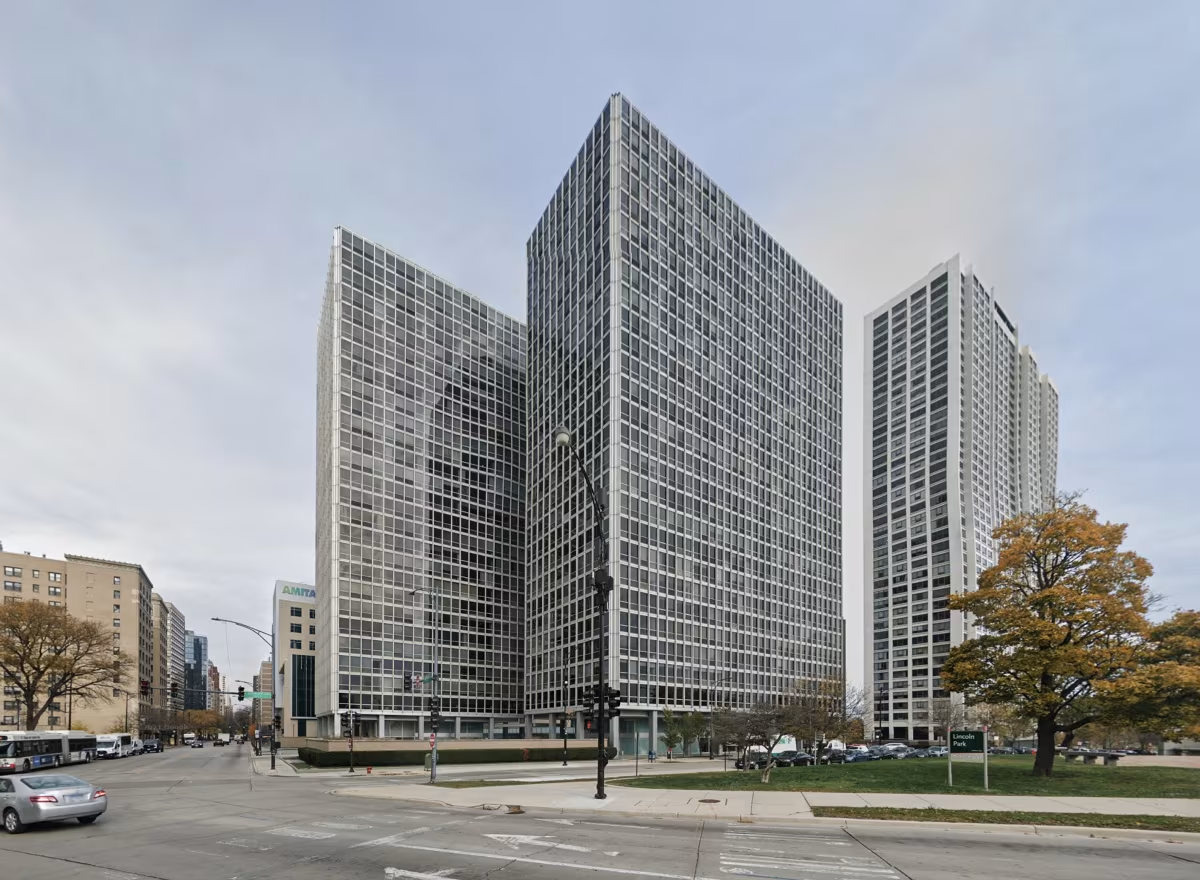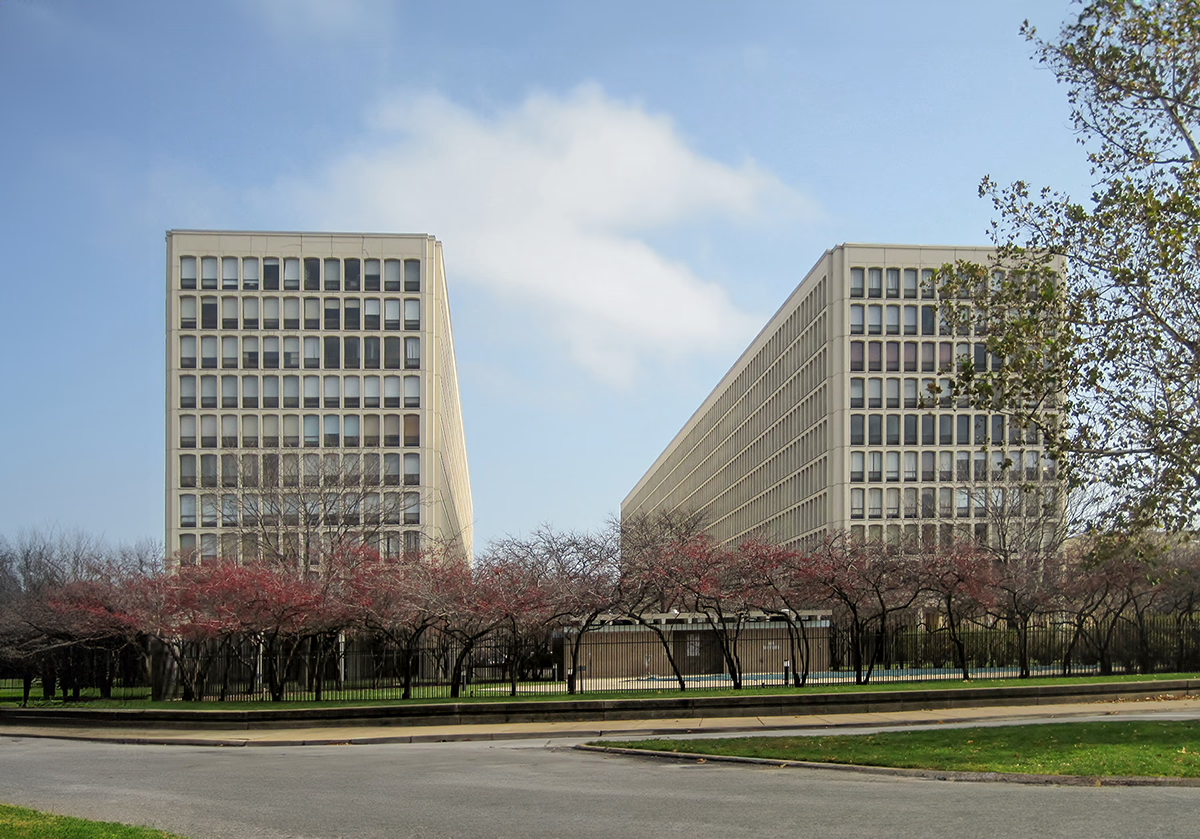Commonwealth Promenade Apartments vs University Apartments


Comparing the Commonwealth Promenade Apartments and the University Apartments is interesting because they both stand in Chicago, IL, and were completed within 5 years of each other, but they were designed by different architects.
This offers a unique glimpse at how rival designers approached projects in the same city during the same era.
Height & Size
These two towers present an interesting contrast in their proportions. The University Apartments rises higher at 308ft (94m), while the Commonwealth Promenade Apartments reaches 253ft (77m). However, the Commonwealth Promenade Apartments accommodates more floors with 27 levels above ground, compared to 10 floors in the University Apartments.
This suggests different approaches to interior space design. The University Apartments has an average floor-to-floor height of approximately 9.4m, while the Commonwealth Promenade Apartments has more compact floors averaging around 2.9m each. The taller building's more generous floor heights might indicate grander interior spaces, higher ceilings, or different programmatic requirements.
These different proportions likely reflect the specific needs each building was designed to serve, whether driven by zoning regulations, client requirements, or the intended use of the spaces within. The contrast shows how architects can achieve different spatial experiences even when working with similar overall building scales.
Architectural Style
Both the Commonwealth Promenade Apartments and the University Apartments were designed in line with the aesthetic conventions of the International Style style.
At the time, this style was at the height of its popularity. So both Mies van der Rohe and I. M. Pei followed what was in many ways expected of them, producing designs that fit comfortably within contemporary architectural norms, rather than breaking with convention.
Uses
Both the Commonwealth Promenade Apartments and the University Apartments were designed to serve as residential towers, and that has remained their main use since their completion, serving similar roles in the urban fabric.
The University Apartments offers 540 residential units.
The University Apartments also provides 220 parking spaces.
Structure & Facade
Both towers share the same structural solution, a Frame system.
A frame structure uses a grid of columns and beams to carry the building's loads. This frees the walls from structural duties, allowing for flexible floor plans and larger windows.
However, when it comes to the facade, both buildings use different approaches. The Commonwealth Promenade Apartments uses a Curtain Wall facade, while the University Apartments uses a Window Wall facade.
A Curtain Wall facade like the one seen in the Commonwealth Promenade Apartments uses a lightweight glass curtain wall hung from the structure, while a window-wall facade like the one seen in the University Apartments uses panels fitted between floor slabs, leaving slab edges visible.
| Commonwealth Promenade Apartments | University Apartments | |
|---|---|---|
| Mies van der Rohe | Architect | I. M. Pei |
| 1953 | Construction Started | 1959 |
| 1956 | Year Completed | 1961 |
| International Style | Architectural Style | International Style |
| Residential | Current Use | Residential |
| 27 | Floors Above Ground | 10 |
| 77 m | Height (m) | 94 m |
| Frame | Structure Type | Frame |
| Concrete/steel | Vertical Structure Material | Concrete |
| Concrete | Horizontal Structure Material | Concrete |
| No | Facade Structural? | Yes |
| Aluminum, Glass | Main Facade Material | Glass, Concrete |
| IL | State | IL |
| Chicago | City | Chicago |
| 330 West Diversey Parkway | Address | 1400 1451 E.55th Street |